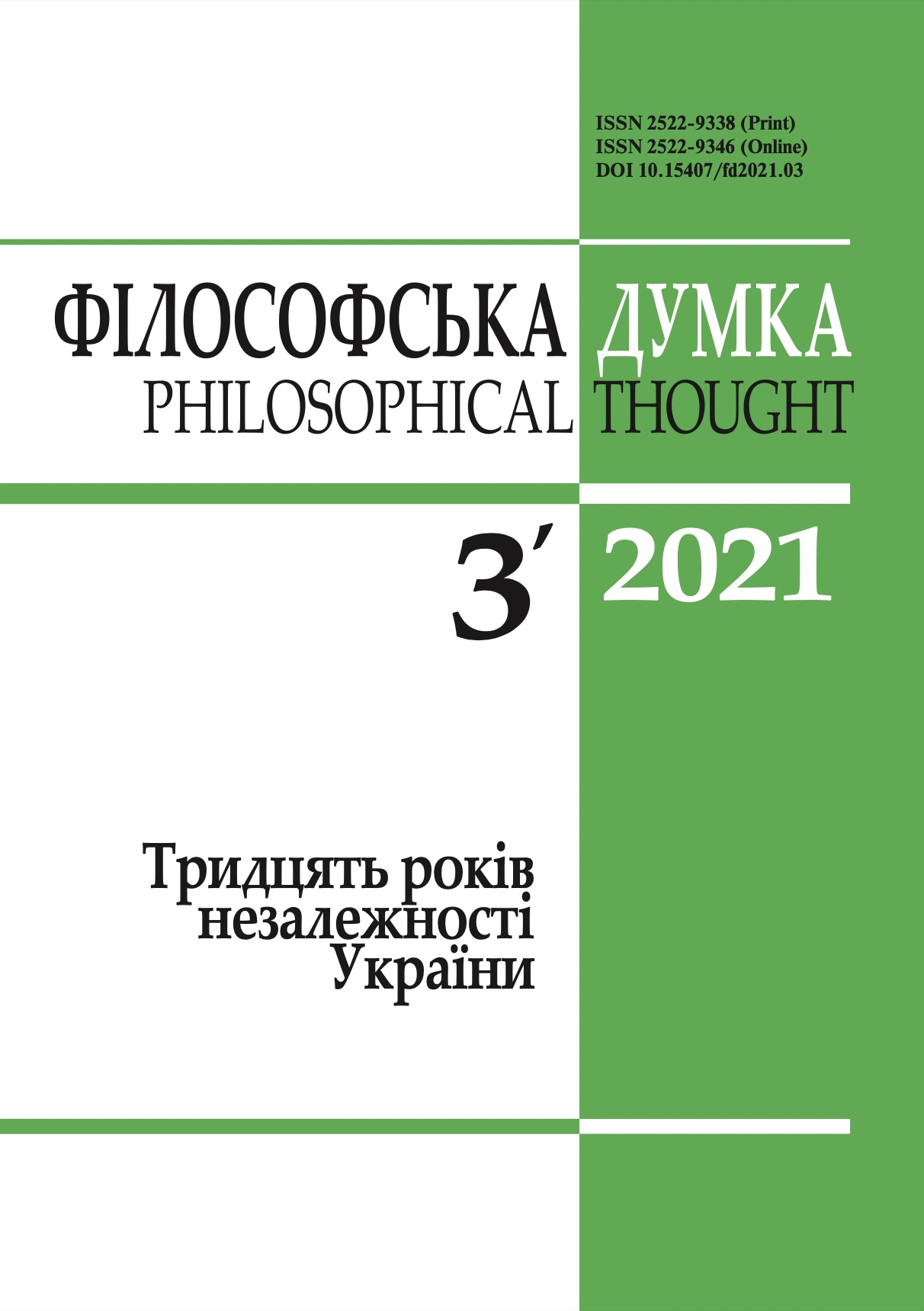THIRTY YEARS OF UKRAINE'S INDEPENDENCE: ACHIEVEMENTS, PROBLEMS AND PROSPECTS
Abstract
Institute of Philosophy of the National Academy of Sciences of Ukraine and the scientific-theoretical journal "Philosophical Thought" on the occasion of the anniversary of our state organized a round table, which took place on June 25, 2021 online. The video conference moderated by Anatoliy Yermolenko and Serhiy Yosypenko lasted almost five hours - supposedly too much for such a format, but not enough to understand the fullness and diversity of socio-political problems facing our country during these thirty years of its development. The jubilee event was opened by Corresponding Member of the NAS of Ukraine Anatoliy Yermolenko, who greeted the participants and introduced guests from other institutions of the Academy: Yevhen Golovakha from the Institute of Sociology, Oleksandr Maiboroda from the Institute of Political and Ethnonational Studies named after I.F. Kuras and a participant in many Ukrainian revolutions Oles Doni (Center for the Study of Political Values). The round table was held in an open atmosphere, which combined a high level of professionalism and sincere civic interest of the participants, it showed the breadth of the problem field and outlined promising areas for new research. Most of the participants of the round table prepared theses of their reports, which we offer to the readers' attention. Happy Independence Day, Ukraine!
Downloads
-
PDF (Українська)
Downloads: 429
Published
How to Cite
Issue
Section
License
Authors who publish with this journal agree to the following terms:
- Authors retain copyright and grant the journal right of first publication.
- Authors are able to enter into separate, additional contractual arrangements for the non-exclusive distribution of the journal's published version of the work (e.g., post it to an institutional repository or publish it in a book), with an acknowledgement of its initial publication in this journal.
- Authors are permitted and encouraged to post their work online (e.g., in institutional repositories or on their website) prior to and during the submission process, as it can lead to productive exchanges, as well as earlier and greater citation of published work (See The Effect of Open Access).


